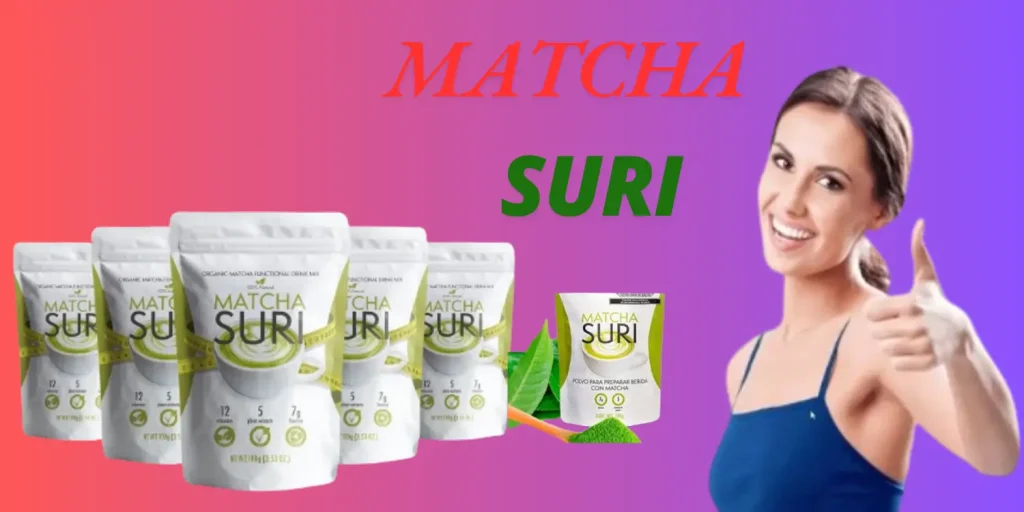Introduction to Matcha Suri?
Tradition, health, and culinary creativity all meet in powdered green tea known as matcha suri, the finely milled iteration of specially grown and processed green tea leaves. Emerge in Japan, matcha is an important part of the Japanese tea ceremony where the principles of harmony, respect, and mindfulness are involved. The word “suri” means to grind, and indeed the tea leaves are diligently stone-ground to a vivid green powder.
So what is the difference between Matcha and regular green tea? The plants are grown in the shade several weeks before harvest, a method that boosts chlorophyll levels and amino acids and instills a uniquely deep umami flavor. Once harvested, the leaves are steamed, dried, and de-stemmed to prepare tencha, which is ground into matcha powder.
In addition to its cultural history, matcha has gained international recognition for its myriad of health benefits. Rich in antioxidants—especially catechins, like epigallocatechin gallate, or EGCG—it aids in detoxification, ramps up metabolism, and offers calm energy due to its special blend of caffeine and L-theanine.
There are also many people who have been influenced by this matcha, and now matcha has become a part of the world—and can be made into drinks, sweets, and savory dishes, loved not only for its original flavor, antioxidants, and rich color.

What Is Matcha Tea Good For?
Matcha tea is not just a flavorful drink; it is a powerhouse of health benefits that can affect your body and mind positively. Made from finely milled green tea leaves, matcha is consumed in whole form, so you get a more concentrated dose of nutrients and antioxidants.
One of matcha’s most acclaimed characteristics is its high level of catechins (a type of flavonoid)—especially EGCG (epigallocatechin gallate), which is considered to be one of the most powerful forms of antioxidants. These compounds work to fight oxidative stress, fight inflammation, and possibly promote heart health and cancer prevention.
Looking for a natural way to energize? Its caffeine content is offset by a naturally occurring amino acid called L-theanine, which tends to induce a relaxed but not drowsy state—not found in coffee. This blend provides a steady stream of energy and increased alertness, which makes matcha an ideal alternative for boosting productivity and focus.
Moreover, matcha is known to enhance metabolism and fat oxidation, which results in its widespread use for those looking to shed pounds. Since this has chlorophyll, it helps detoxify the system.
As for mental health, the calming nature of matcha can fight off stress and anxiety, promoting a groundwork for mindfulness and relaxation. High in antioxidants and micronutrients, matcha tea can be a go-to for beneficial benefits that advance both the physical and mental elements of our lives.
How Healthy Is Drinking Matcha Latte?
One popular type of matcha latte, a vibrant green drink of powdered green tea and milk, is noted for its health benefits and rich taste. Matcha latte drinking can be a healthy lifestyle when done with moderation and careful choice of materials.
Matcha is a traditional powdered green tea—dense with antioxidants (specifically, catechins, including EGCG (epigallocatechin gallate), which can be associated with decreased inflammation, improved heart health, and cancer prevention. Matcha also contains L-theanine, an amino acid that encourages relaxation and focuses the mind, making it a popular coffee substitute for those who want sustained energy without the jitters. A moderate caffeine kick from matcha might also improve mental alertness.
The healthfulness of a matcha latte, though, depends largely on how it’s prepared. In fact, it can be a low-calorie, nutrient-rich drink when you use unsweetened or minimally sweetened milk (e.g., almond, oat, or coconut milk) and use little added sugar. On the flip side, packaged or café versions often contain syrups and added sugars, which can lessen its advantages.
Matcha does have many benefits, but too much of a good thing can cause unwanted consequences such as caffeine sensitivity and digestive issues. One matcha latte a day can be a lovely, healthy treat for most people.
What Are the Benefits of Matcha Suri?
A Matcha Suri is a traditional tool that finely grinds tea leaves into matcha powder. If you are a fan of brewing up matcha in a ceremonial manner as well as a connoisseur, there are several reasons to use a Matcha Suri.
Freshness and Flavor
Grind tea leaves only when required for maximum freshness. Compared to pre-ground powders that lose their potency over time, freshly ground matcha has a far brighter color, bolder flavor, and more intense aroma.
Enhanced Nutritional Value
Another benefit of grinding your own matcha is that it can retain more of its nutrients, like catechins, chlorophyll, and antioxidants, since the tea leaves are not exposed to long-term storage, light, and air.
Custom Grind Texture
With a Matcha Suri, you can tweak the texture of your powder to your liking, allowing you to create the best filter for both ceremonial and culinary purposes.
Cultural Practice and Meditation
Sipping matcha from a Matcha Suri takes its users back to the ancient process of tea making in Japan. The process of grinding itself can be a meditative and mindful process that makes the experience of preparing matcha that much more enjoyable.
Sustainability
Buying whole tea leaves and grinding yourself minimizes packaging waste and the need for commercial powders.
So, ultimately suiting the Matcha lover on an ancient journey who appreciates quality and tradition—a Matcha Suri is right up your alley!

Is matcha good for weight loss?
Matcha, finely ground green tea powder, is often lauded for its potential health benefits (including weight loss). This colorful green tea is loaded with catechins and the foremost of the lot, epigallocatechin gallate (EGCG), which is known to increase metabolism and fat oxidation during exercise. But when combined with caffeine, matcha can increase physical activity levels and caloric expenditures by providing natural energy.
Making you feel fuller for longer and staying fuller for longer—one of the most significant weight-loss benefits of matcha. Before meals, matcha may reduce appetite, which could help with lowering calorie intake. Moreover, the gradual energy that matcha provides (as opposed to coffee, which gives you spikes) can also help keep sugar cravings in check.
Matcha is also low in calories, which renders it a guilt-free supplement to a balanced diet. Its antioxidants help support metabolism, and they can also be beneficial for health, helping combat oxidative stress from dieting or exercise.
But matcha alone is not a weight-loss miracle. Sustained weight regulation depends on a mix of healthy eating, movement, and hydration. Though Matcha can support these efforts, its benefits are maximized as a piece of a full lifestyle puzzle. For the best results, always choose high-quality, unsweetened matcha.
Why is matcha famous in Japan?
Known for its bold flavor, numerous health perks, and deep-rooted cultural significance, matcha has a revered status in Japanese culture. Its recognition in Japan derives from a complicating set of historical, spiritual, and culinary reasons.
Japan’s relationship with matcha dates back to the 12th century, when the monk Eisai brought tea seeds from China and spread the concept of tea consumption among Zen monks. These monks would use matcha during meditation, as matcha has a calming yet alerting effect due to its unique blend of caffeine and the amino acid L-theanine. Eventually, matcha became the heart of the Japanese tea ceremony, or chanoyu, an elaborate ritualized art form that stands for harmony, respect, purity, and tranquillity.
Matcha’s place in Japanese culture was further reinforced by culinary tradition. Its bright green color, earthy taste, and all-around versatility made it a fixture in traditional confections (wagashi) and then in modern applications like lattes, ice cream, and desserts. Matcha is also really aesthetic, because Japanese people like simple and natural beauty.
The health benefits of matcha have also helped its longevity in the spotlight. High in antioxidants, vitamins, and minerals, matcha is classified as a superfood in Japan and beyond. The interconnectedness between tradition, wellness, and taste has guaranteed matcha’s longevity in notoriety as both a well-known symbol and a beloved beverage.
Matcha Suri: A Conclusion?
Matcha suri, or ground matcha, is an important part of Japanese culture and international wellness trends. It has roots interspersed with Japanese tea ceremony, symbolizing mindfulness, harmony, and respect. In addition to its cultural significance, matcha suri is now known all over the world for its wonderful health benefits. High in antioxidants—especially one called EGCG—it helps boost metabolism, reduce inflammation, and promote mental clarity, thanks to the unique mix of caffeine and L-theanine.
In culinary use, matcha suri adds its signature green color and earthy flavor, becoming a key base for traditional Japanese sweets and today’s desserts. Its healthful properties and versatility have lifted it from cultural treasure to global superfood.
Matcha suri spans both ancient and modern worlds, fusing the ancient knowledge and wisdom of time-honored practices with a more contemporary, health-minded approach to living. Whether sipped in ritual or employed in innovative cuisine, it continues to be a classic symbol of health and peacefulness.

